Happy Harvest Festival | Selamat Gawai Dayak Gayu Guru Gerai Nyamai
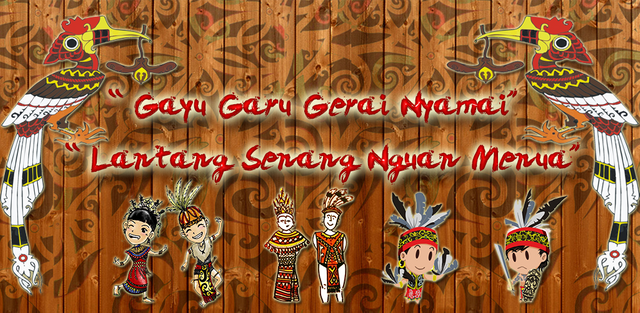
Tomorrow, June 1st, the Dayak people of Sarawak (Malaysia Borneo) and West Kalimantan (Dutch Borneo), Indonesia, will celebrate our annual harvest festival called Gawai Dayak. Yesterday, I wrote about the Sabah's Harvest Festival, Kaamatan, and today I will write about Gawai Dayak. The two festivals are very similar because they are celebrating the harvest of the year. The main difference between the two festivals are they are celebrated at different states in Malaysia - Gawai Dayak is celebrated in Sarawak on June 1st, whereas Kaamatan is celebrated in Sabah on May 31st.
I am an Iban (Sea Dayak), the largest ethnic group in Sarawak. In Sarawak, the Dayak are divided into two ethnicities - Iban (Sea Dayak) and Bidayuh (Land Dayak). The Kalimantan (Indonesia) Dayak are divided into more groups including Ngaju, Mendawai, Meratus and so on. These ethnics or groups have their own languages and customs. And I think we celebrate Gawai Dayak differently from one another depending on our respective customs. However, I believe we share a lot of similarities in our cultures.
The Dayak were originally animist in belief but since the early 20th century, many were converted to Christianity or Islam.
Gawai means festival so the term Gawai Dayak literally means the Dayak Festival. The preparation for the festival usually begins as early as April whereby the traditional Dayak wine called tuak (rice wine) is brewed at least a month before the celebration. There is another type of liquor called langkau is also brewed by distilling tuak over a fire. These days, most people prefer to buy tuak or langkau from someone else (brewers) instead of brewing it themselves. My mom has not been brewing tuak for many years and the last time she did it was more than 20 years ago.
Other than brewing tuak, traditional cakes and biscuits also need to be made in advance.
A couple of days before Gawai, the longhouse folks usually organize a gotong royong (working together as a community) to clean the ancestral graveyard or the areas surrounding the longhouse. The men folks will slaughter the poultry (pigs and chicken) for the feast. Glutinous rice is also cooked in bamboo logs to soak up the bamboo aroma. On the eve of Gawai Dayak, the women folks will cook foods in large quantities to prepare for the feasts on the eve of Gawai Dayak and on the festival day itself.

The celebration begins on the evening of May 31st. Those who are still practicing paganism/animism will conduct some traditional rituals and ceremonies including casting the "spirit of greed" (muai antu rua) among the people and offering ceremony (miring). After preparing the offering, the chief will give a thanksgiving prayer to the gods for the good harvest. He will also ask for blessings for the people. As he prays, he will wave a cockerel (bebiau) over the offerings. Below is an excerpt from the prayer. The original text is in Iban and the English translation is below it.
O-ha! O-ha! O-ha!
Aku ngangau, aku nesau,
Aku ngumbai, aku ngelambai.
Ngangau ka Petara Aki, Petara Ini.
Aku minta tuah, minta limpah,
Aku minta raja, minta anda,
Aku minta bidik, minta lansik,
Minta tulang, minta pandang.
Awak ka kami bulih ringgit, bulih duit,
Bulih tajau, bulih segiau,
Bulih setawak, bulih menganak
Aku minta bulih padi, bulih puli.
Agi ga aku minta gerai, minta nyamai,
Minta gayu, minta guru!
Selamat Ari Gawai!
(English translation)
O-ha! O-ha! O-ha!
I cry out, I summon,
I call, I invoke,
calling on God of our grandfathers, of our grandmothers.
I ask good fortune in full measure,
wealth, prosperity,
luck & insight;
I ask for strength, & good fame.
So that we may gain ringgits, cash, jars of value, gongs;
so we may have children.
I ask we may gain paddy & pulut (glutinous rice);
At last, I ask for health & peace, long life & wisdom.
Happy Gawai/Harvest Festival to all!
Here's a video of a bebiau ceremony:
After the offering ceremony is completed, the feast will begin and everyone will seat at the ruai (the longhouse gallery) for dinner. This dinner is known as "makai rami" or the festival meal. After dinner, while waiting for the strike of midnight (June 1st), some contests will be held such as a traditional beauty pageant to choose the festival queen (Kumang) and king (Keling). The contestants must wear Iban traditional costume.
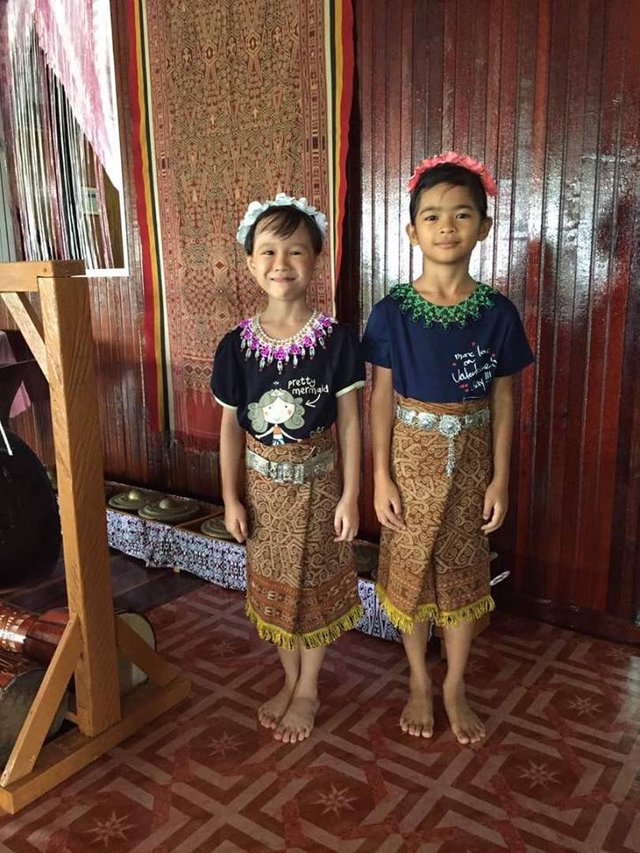
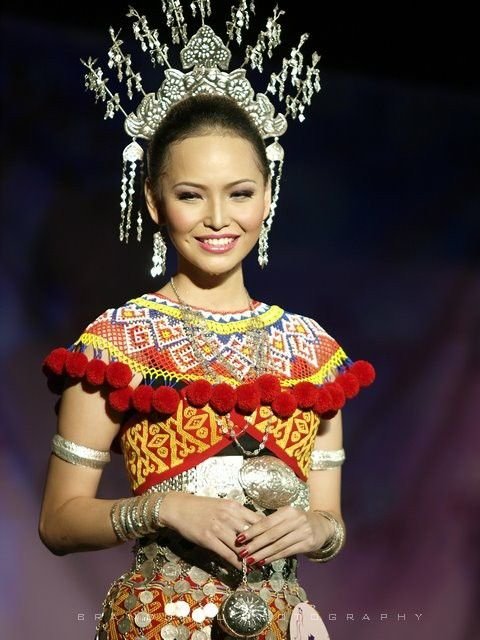
At midnight, everyone will gather to have a toast (ngirup ai pengayu) to welcome the new harvest year. The rest of the night and on the day of the festival lots of activities and games will be held to foster good relations among the village folks. They will be lots of dancing, feasting, and merrymaking that usually lasted for a couple of days.
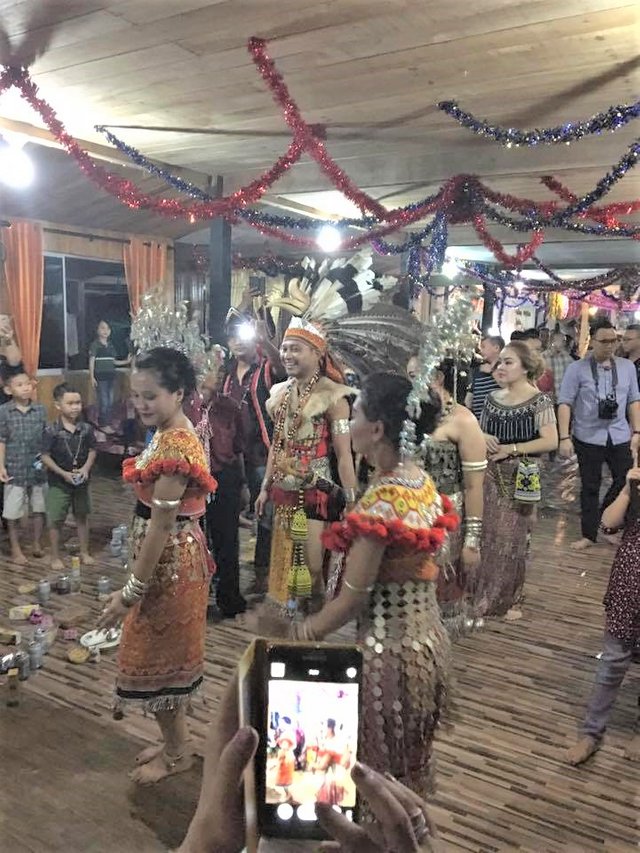
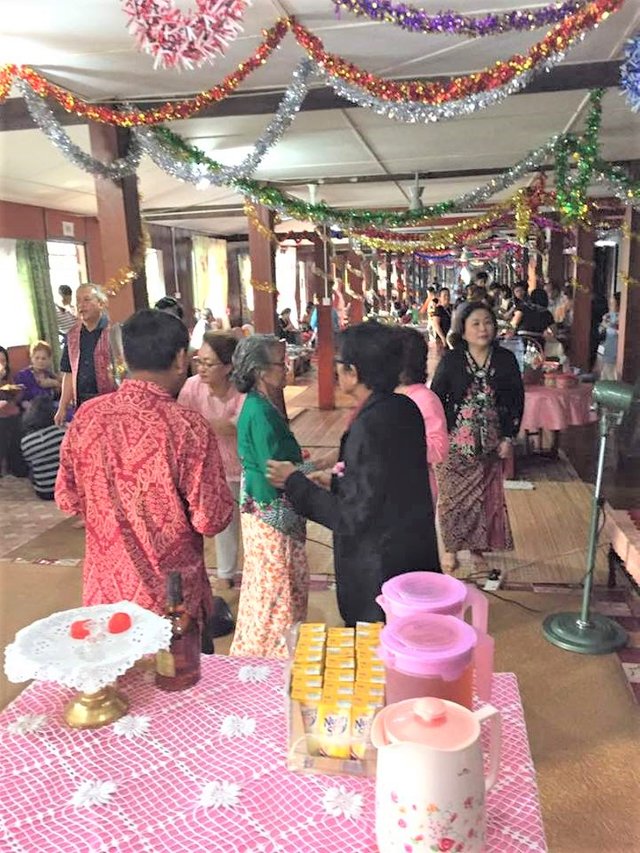
Selamat Gawai Dayak, Gayu Guru Gerai Nyamai Nguan Menua!
Thank you for checking out my post!
My previous posts:
Happy Harvest Festival | Kotobian Tadau Tagazo Do Kaamatan
Pencil Portrait | A Portrait For An Awesome Couple
I am selling some of my paintings over on Artfinder. Shipping is FREE worldwide. You can check them out here: ARTFINDER.
My gifts & merchandise available at REDBUBBLE (international), Printcious & CreativeUnited (Malaysia).
Thank you!
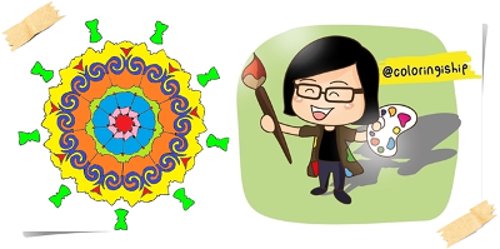
Sure is great to learn about different cultures around the world. And I dare to say that nothing represents culture better than colorful festivals. I learned a lot about Malaysian festivals today. Thanks for the wonderful article.
Thank you @chrislyr
Happy Gawai Dayak! @coloringiship And oh boy..... tuak..... that taste is too strong for me... :/
Happy Gawai to you too @gordon92 :)
wonderful post with good content and an awesome image aswell
Thank you @kamrankhan900
the festival looks so amazing. i would love to be apart of it
It looks like a lot of traditional celebrations. It looks very pleasantpleasant @coloringiship
Thank you @purepinag